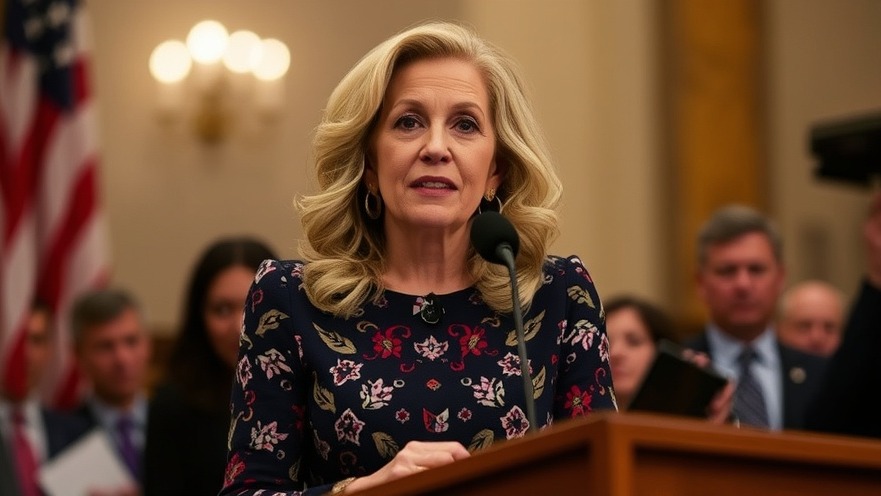
The Ticketmaster Dilemma: Misleading Practices Under Scrutiny
In the latest turn of events regarding the contentious relationship between ticketing giant Ticketmaster and U.S. lawmakers, Senator Marsha Blackburn of Tennessee is demanding clarity about potential misinformation regarding the company’s management of online scalpers. This call to action comes on the heels of a significant lawsuit filed by the Federal Trade Commission (FTC), which claims that Ticketmaster and its parent company, Live Nation, have allowed bot-driven scalping to thrive, effectively abandoning fans who wish to purchase tickets at fair prices.
Alarming Allegations: Understanding the FTC Lawsuit
The FTC has launched an aggressive legal campaign against Ticketmaster, seeking hefty financial penalties under the Better Online Ticket Sales Act, also known as the BOTS Act. With fines potentially reaching up to $53,000 per violation, many speculate that total financial repercussions could amount to hundreds of billions of dollars. This has raised serious questions about whether Ticketmaster has been operating under deceptive practices, as some claim that the company colluded with scalpers by deliberately keeping ticket limits lax.
Congressional Pressure Mounts After the Taylor Swift Controversy
Blackburn's scrutiny does not exist in a vacuum; it is bolstered by previous controversies, notably the public backlash over Ticketmaster's faltering ticket sales for Taylor Swift’s “Eras Tour.” After many fans were unable to secure tickets due to heavy traffic and alleged scalper activity, Congress has taken a keen interest in investigating how market dominion affects consumer rights. The Senate Judiciary Committee highlighted these issues during a 2023 hearing, where Blackburn herself remarked on the apparent lack of satisfactory countermeasures to protect ticket-buying consumers.
Ticketmaster’s Defense: Claims Versus Reality
In written testimony, Live Nation’s CFO Joe Berchtold claimed that the company was dedicated to combatting ticket scalpers utilizing bots, stating they have spent over a billion dollars on cybersecurity measures. However, the FTC’s findings suggest that internally, executives acknowledged turning a blind eye to certain violations as a matter of policy. This disparity between public statements and internal communications raises substantial concerns, further compounding Blackburn's insistence that Congress deserves transparency regarding these troubling practices.
The Broad Implications of Ticketmaster’s Dominance
As Ticketmaster faces increasing scrutiny, this situation opens a significant dialogue about monopolistic practices within the live entertainment industry. The Senate has expressed concerns that Ticketmaster’s dominant market position inhibits competitive pricing, limits innovation, and ultimately harms consumers and performers alike. Incoming regulations might not only affect ticket sales practices but could redefine the landscape for the entire industry.
Public Backlash and Consumer Perspectives
The mounting frustration from consumers, particularly in light of the Taylor Swift ticket debacle, means that Ticketmaster is at a pivotal juncture. The public outcry is not merely about a single botched sale; it encompasses broader grievances about the financial and emotional toll imposed on fans. What happens next could steer public sentiment towards new legislative measures aimed at better protecting consumer interests in all ticketing platforms.
Future Trends: What Lies Ahead for Ticketing Regulations?
Looking forward, the likelihood of concerted legislative action against Ticketmaster and similar entities is high. As discussions evolve in both consumer circles and political arenas, the push for transparency will likely gain momentum. Should Congress uncover more evidence of wrongdoing, we might even see various calls for the breakup of Ticketmaster’s monopoly, reminiscent of historical antitrust actions in U.S. history aimed at protecting consumers and facilitating fair competition.
The Path Forward: Why This Matters to You
As awareness grows about these issues, consumers must remain vigilant. Understanding the dynamics of ticketing—along with the implications of impending legislation—can empower individuals to advocate for fair practices. Whether you are a fan trying to purchase tickets or simply intrigued by the evolving nature of consumer rights, staying informed is vital.
The importance of fair access to live entertainment cannot be overstated. After all, what is entertainment without the ability for everyone to participate? Let your voice be heard, as consumer advocacy could very well pave the way for a more equitable market.
In conclusion, continued pressure from both lawmakers and consumers alike will likely shape the future landscape of ticket sales and online purchases. By advocating for transparency and accountability from companies like Ticketmaster, the public can help foster an environment that prioritizes the rights and needs of real fans.
 Add Element
Add Element  Add Row
Add Row 



Write A Comment